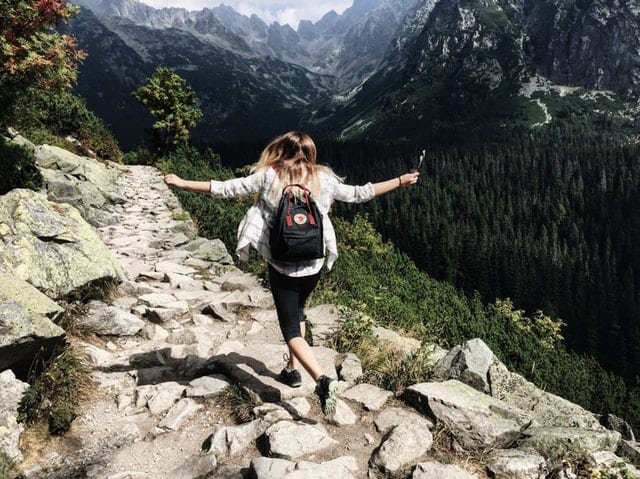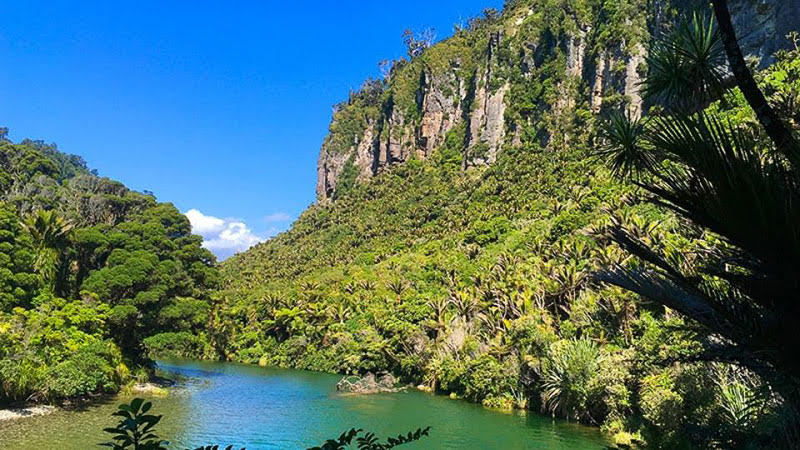As travel – both arranging and embarking on it – has become easier, the number of holidayers has unsurprisingly increased. In 2017 alone, over four billion people went on airborne journeys – and the travel and tourism sector aims to almost double that yearly tally to 7.8 billion by 2036.
All the same, the industry could struggle to meet that goal ifeven easier travel is not facilitated. Travellers anticipate fast, authentic, personalised, seamless and secure experiences – but these can be realised with the use of technology, the World Economic Forum indicates.
Reassuring, both Millennials and Generation Z treat technology as second nature in a way that would have been alien to members of previous generations. Therefore, multiple developments in tandem are helping to fuel the following trends that look set to especially blossom in 2019.
Using virtual and augmented reality to recreate travel experiences
In the world of technology, there are currently some amazing projects that bode well for the future of travel and its possibilities. Today, you can join an expedition-style vessel to see cold reaches of the Arctic, while space tourism is on the horizon as Virgin Galactic prepares to start flights this year.
However, given that such luxury sojourns often come with premium price tags attached, you could be reticent about acting on these opportunities. Alternatively, you might just want cost-effective options to “try before you buy” – and virtual and augmented reality can enable those.
Virtual reality can give users an idea of what it would be like to fly within an active volcano or watch a high-profile sports fixture from front-row seating. VR could even take people back in time – for example, to Ancient Egypt or Shakespearean Britain.
Travelling to improve physical fitness
Prior to the Millennial generation, travel tended to be seen as a luxurious break from the usual day-to-day pursuits of life back home. However, we can learn from the rather different way in which Millennials often see travel: as a necessity due to the valuable opportunities it affords for growth.
This can include mental growth; perhaps a young adult is uncertain about what path to next take in life, but hopes that taking time out to travel can ease their self-discovery. However, growth opportunities can also allow for better physical fitness on the traveller’s part.
You might already have considered hiking up a particular, well-known mountain or cycling a specific route that has been strongly recommended to you by avid cyclists. According to one survey cited by The Motivated Millennial, sailing and island hopping are both popular travel activities among Millennials. Certain places are especially suitable for kayaking or skiing.

Exploring relatively unorthodox and unique destinations.
Yes, there might be certain parts of the world that are especially commonly recommended by travel gurus. However, you aren’t obliged to stick just to those recommendations – and, indeed, Millennial holidayers are fond of heading off the beaten track for a little further exploration.
Examples of places that tend to get overlooked – though less so by adventurous Millennials – include Italy, Portugal, Thailand, New Zealand, Peru and Costa Rica. Still, even if you choose a more traditionally popular destination, you could unearth a few gems, so to say, slightly further afield.
What if your travels take you to the Floridan city of Orlando? It’s an obvious choice of destination for a family holiday due to the many local theme parks, including Walt Disney World and Universal Orlando Resort. However, from there, you wouldn’t have to leave the Sunshine State to visit the comparatively sleepy community of Navarre, where you could wind down after a busy week.
Looking online for holiday inspiration
This might not initially strike you as the most modern trend. If you are still relatively young, you might not even remember a time when you didn’t use the Internet to inform your itineraries. However, what has changed is the number of information sources that are used for research.
In 2002, that number was three for each main trip; however, the tally has steadily grown to nudge past 10 by 2017, says Travel Agent Central. These two numbers still account for offline sources such as friends and family, but social media has much grown as a pivotal research source since 2012.
Young travellers have also flocked to online travel agencies. This is a marked change from a decade ago, when more than 70% of youth travel bookings were made through physical travel agent offices.Ocean Florida is one online agency that lets users quickly book various facets of a Florida holiday.
Sharing travel experiences online
This is yet another telling reflection of the social media age. Many Millennials are attracted to social media due to the range of modern ways in which it lets them report their experiences. These means include sharing photographs, streaming video and, of course, posting snippet-like textual reports.
Even if you are thoroughly familiar with the extent to which social media has flourished in functionality, you could still be stunned to learn that 97% of Millennials share travel highlights online.You could find social media as useful as TripAdvisor for helping you to plan your travels.
The emergence of the “digital nomad”
Today, many members of the Millennial and Gen Z demographics would still, when on the go, deem themselves “backpackers” or “travellers”. However, one survey from 2017 has hinted at the increasing prominence of another, more modern label: “digital nomad”.
This is the label that 0.6% of Millennial and Gen Z travellers chose for themselves in that 2017 survey. Yes, 0.6% seems like a tiny proportion; however, it translates into 1.8 million trips.
These days, there are various ways of maintaining a digital nomadic lifestyle – with, for example, 56% of travellers in this category having used Airbnb on their previous main journey. Compared to other travellers, digital nomads are thrice as likely to utilise a co-working space, too.
For 55% of them, using an online travel agency – like Ocean Florida, which is aimed at holidayers set to depart from the UK – is often their favoured way of booking accommodation.

